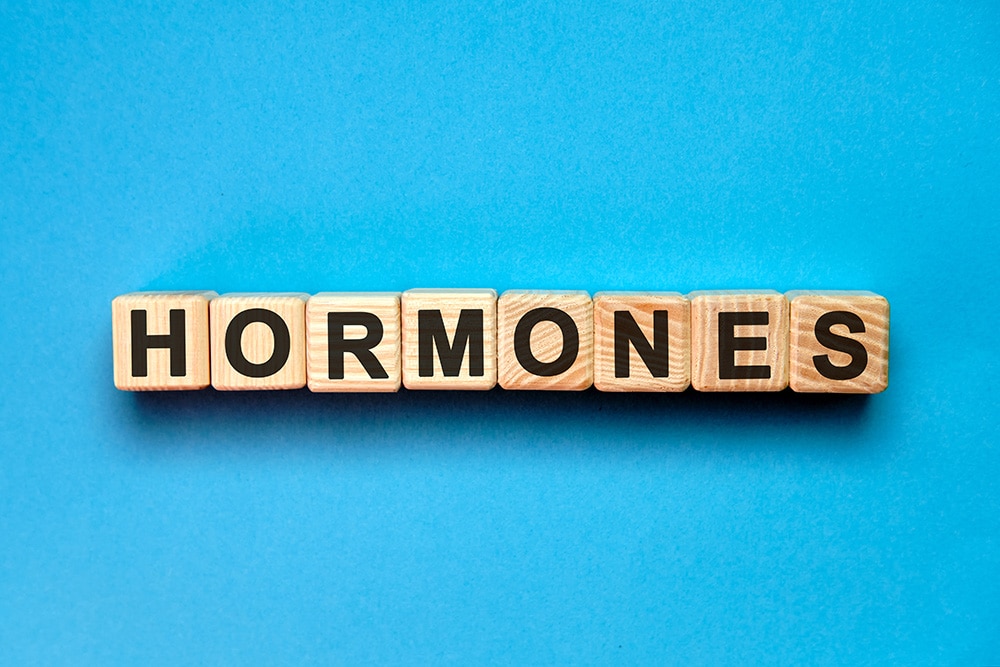When it comes to weight loss, many individuals believe that simply following a strict diet and exercise regimen will lead to successful results.
However, the reality is that weight loss is often more complex than that. Hormones play a significant role in regulating our metabolism, appetite, and fat storage, making them crucial factors to consider in the weight loss journey.
But what are the hormones, and how do they have an impact on our weight? Here at Bodyline, we want to help you find out, so you can understand why weight loss and obesity treatment isn’t as easy as some seem to assume.
The Different Hormones that Impact Your Weight
Insulin
Insulin is a hormone produced by the pancreas that plays a vital role in regulating blood sugar levels. It helps transport glucose from the bloodstream into cells, where it is used for energy or stored as fat.
When insulin levels are high, our bodies are more likely to store excess calories as fat, leading to weight gain. Insulin resistance, a condition where the body becomes less responsive to insulin, can further contribute to weight gain and difficulty in losing weight.
Studies show that sleep deprivation, even just after one night, can impact insulin resistance, which is why good sleep is such a vital part of healthy living and preventing obesity. When people have jobs that negatively affect their sleep pattern, this can impact their hormones and therefore increase their likelihood of obesity.
Sex Hormones: Oestrogen and Androgens
Sex hormones, such as oestrogen in women and androgen in men, also have an impact on weight regulation.
Oestrogen influences fat distribution in women, with higher levels associated with increased fat storage in the hips and thighs. Androgens, on the other hand, play a role in muscle development and fat metabolism in men.
Hormonal imbalances or changes in sex hormone levels can disrupt the body’s ability to maintain a healthy weight, particularly as we age. For women, the menopause sees a decrease in oestrogen and therefore an increase in fat storage causing weight gain particularly around the stomach.
That’s why it is so much trickier for women to lose weight as they pass the menopause, and a reason why medical weight loss treatments may be the best approach to tackle the weight despite hormonal balances.
Cortisol
Cortisol is also known as the “stress hormone” and can have an impact on weight gain. When the body is under stress, cortisol levels increase as part of the body’s natural response. In the short term, this increase in cortisol can suppress appetite and increase the breakdown of stored fat for energy. However, prolonged or chronic stress can lead to consistently elevated cortisol levels, which can have negative effects on weight.
High cortisol levels can contribute to weight gain in several ways, including increased cravings and appetite particularly for high-calorie, comfort foods, promoting the storage of fat, and increasing muscle breakdown impacting the body’s ability to burn fat.
What’s worse, is high stress can also come from weight gain, so when this hormone is responsible for weight gain you may find yourself in a vicious circle of weight gain.
GLP-1s
GLP-1s, or glucagon-like peptide-1 receptor agonists, are a class of hormones that regulate blood sugar levels and appetite. GLP-1s help control blood sugar, slow down stomach emptying, increase feelings of fullness, and reduce food intake.
Research has suggested that people living with obesity may have issues with the signalling from GLP-1 hormones, in that they are not able to identify when they are feeling full, therefore continue eating past their daily calorie intake.
Medications like liraglutide (Saxenda) and semaglutide (WeGovy) are GLP-1 receptor agonists, and artificially mimic the effect of the GLP-1 hormone. Injectable medications containing tirzepatide with dual incretins combining GLP-1 and GIP (Mounjaro), are proving to support weight loss from 20-25%. These injections have shown very promising results in weight loss when used as part of a comprehensive weight management plan.
Contact Bodyline today to find out more about our safe and effective weight loss programmes and range of treatment options.
How to Lose Weight When Nothing Else Works
For individuals who have struggled with weight loss despite traditional diet and exercise efforts, addressing the root cause of hormonal imbalances may be the key to success.
It is essential to work with healthcare professionals who specialize in medical weight loss, such as those at Bodyline Clinic. They can conduct comprehensive medical evaluations and develop personalised treatment plans to help you lose that stubborn weight.
In some cases, hormone replacement therapy (HRT) or medications that regulate specific hormones may be recommended to rebalance the body and support weight loss efforts. These treatments should always be administered under the guidance of qualified healthcare professionals to ensure safety and effectiveness.
Medical Weight Loss Programmes with Bodyline
Bodyline Clinic offers specialised medical weight loss programmes that go beyond traditional diet and exercise approaches. Their experienced healthcare professionals understand the crucial role hormones play in weight regulation and design personalized treatment plans to address individual needs.
We provide guidance on hormone replacement therapy, if necessary, and offer evidence-based medications like liraglutide (Saxenda), semaglutide (WeGovy), tirzepatide (Mounjaro) as part of a comprehensive weight management plan.
Our healthcare professionals at Bodyline Clinic closely monitor your progress, make necessary adjustments to treatment plans, and provide continuous support to ensure long-term success.
Dr. Graham Brown, our Head of Clinical Team says: “With our expertise and personalised approach, individuals can overcome the barriers to their success and achieve safe, effective, and sustainable weight loss.”
Weight loss is a multifaceted journey influenced by various factors, including hormones. Hormonal imbalances can disrupt metabolism, appetite, and fat storage, making weight loss challenging for many individuals. Understanding the impact of hormones on weight regulation is crucial for developing effective weight loss strategies.
If you have struggled with weight loss and suspect hormonal imbalances may be a contributing factor, consider reaching out to Bodyline Clinic. Our experienced healthcare professionals are dedicated to providing personalised guidance and support on your weight loss journey.
Contact Bodyline Clinic today by calling 0800 995 6036 or emailing customer services on customerservices@bodylineclinic.com to learn more about their medical weight loss programmes and start your journey towards achieving sustainable weight loss.















